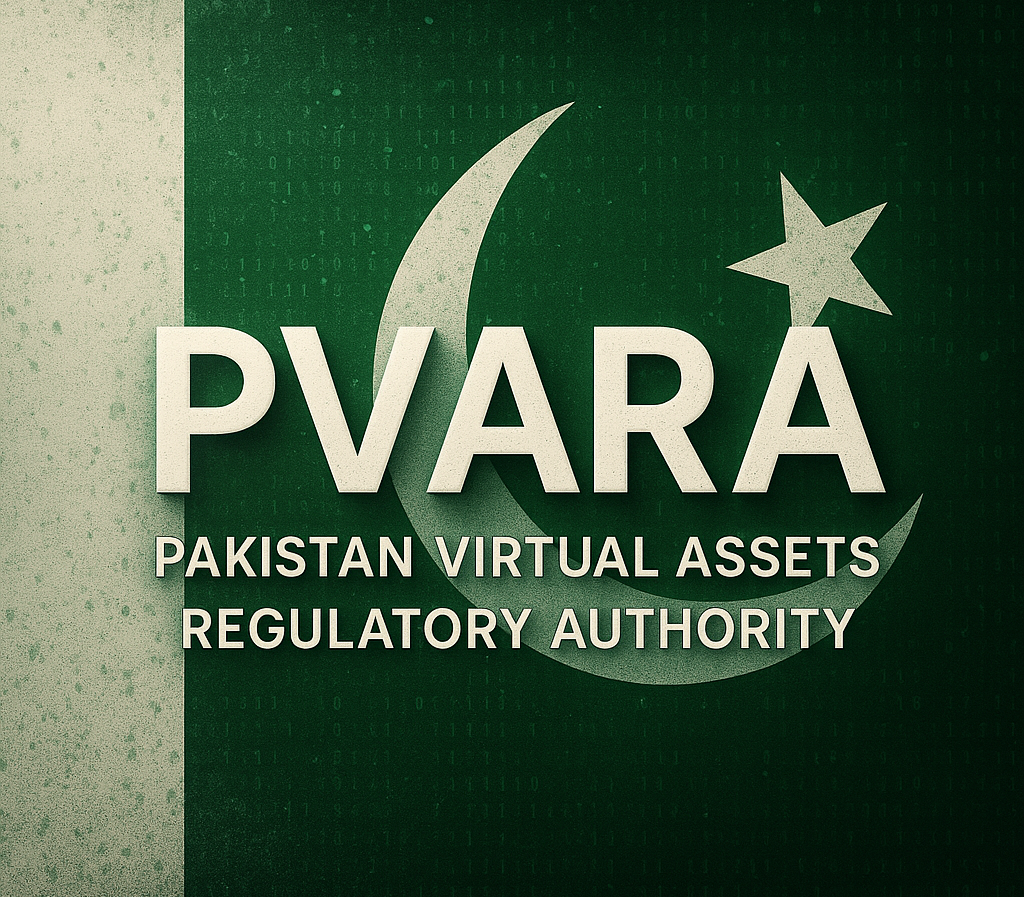PVARA’s October Update: Finance Minister Hints Operations Will Begin Later This Year
Pakistan’s finance minister confirms the Pakistan Virtual Assets Regulatory Authority (PVARA) is finalizing its crypto framework, with operations expected to begin before year-end. Here’s what’s coming next for Crypto Pakistan.

Pakistan is inching closer to officially launching its long-awaited crypto regulatory framework. Speaking to a local news channel, Finance Minister Muhammad Aurangzeb revealed that the Pakistan Virtual Assets Regulatory Authority (PVARA) is nearing completion of its operational setup, and the framework is expected to be finalized before the end of 2025.
This marks a major step toward transitioning Pakistan’s crypto industry from a gray area to a regulated digital-asset ecosystem, aligning with international standards set by the Financial Action Task Force (FATF).
The Pakistan Virtual Assets Regulatory Authority (PVARA) was officially established under the Virtual Assets Ordinance, 2025, passed on July 8, 2025. The move followed months of inter-ministerial discussions aimed at creating a clear legal structure for virtual assets, crypto exchanges, and Web3 innovation in the country.
PVARA’s first board meeting was held on August 26, 2025, in Islamabad, chaired by the authority’s chairperson and attended by key stakeholders, including:
- Governor, State Bank of Pakistan (SBP)
- Chairman, Securities & Exchange Commission of Pakistan (SECP)
- Federal Board of Revenue (FBR)
- Ministry of IT & Telecom
- Ministry of Law & Justice
- National Cybercrime Investigation Agency
In that meeting, the board approved the initial licensing framework, formed multiple working committees, and initiated the process of inviting both local and international crypto companies to apply for registration and regulatory sandbox participation.
Finance Minister Muhammad Aurangzeb stated that PVARA has already conducted two board meetings since its formation, with multiple departments working together to finalize the legal and operational procedures.
“The framework is in its final stages. We’re making sure it’s comprehensive, globally compliant, and beneficial for both innovation and investor protection. The goal is to begin operations before the year is out,” Aurangzeb said.
According to the minister, PVARA’s mission is not only to regulate but also to enable safe innovation in the digital assets economy, ensuring Pakistan can attract investment while maintaining compliance with global AML/CFT standards.
Key Developments So Far
- Legal Ordinance Passed (July 2025): Virtual Assets Ordinance 2025 formally created PVARA.
- First Board Meeting (August 2025): Draft licensing framework approved, committees formed for sandbox testing, taxation, and compliance.
- Funding Approved: The Economic Coordination Committee (ECC) sanctioned Rs 800 million for PVARA’s capacity building and digital infrastructure.
- Foreign Interest: PVARA invited global exchanges and Virtual Asset Service Providers (VASPs) to submit expressions of interest (EoIs) to operate in Pakistan.
- Compliance Roadmap: The framework follows FATF guidelines, focusing on KYC, AML/CFT, and consumer protection.
With the framework nearly complete, Pakistan is preparing to:
- Launch the licensing portal for exchanges and wallet providers.
- Introduce a regulatory sandbox for local fintech and blockchain startups.
- Publish taxation and reporting rules for virtual assets.
- Onboard foreign partners interested in operating within a regulated crypto market of over 40 million potential users.
The Finance Ministry has also confirmed that pilot licensing for exchanges could begin in Q1 2026, once PVARA’s operational wings are fully established.
For years, Pakistan’s crypto industry has operated under uncertainty, banned by banks yet thriving online among millions of users and freelancers.
With PVARA now taking shape, Pakistan could finally join the growing list of countries embracing blockchain regulation rather than restricting it. The authority’s structure, involving the SBP, SECP, and FBR, indicates a collaborative and pragmatic approach to oversight rather than blanket prohibition.
If executed well, PVARA could position Pakistan as one of South Asia’s most forward-thinking crypto jurisdictions, attracting both foreign exchanges and local Web3 startups.
Pakistan’s timing is strategic. Across the world, governments are adopting clearer crypto frameworks, from the US regulations to Dubai’s VARA framework, which inspired similar governance models in the region.
By creating PVARA, Pakistan aims to ensure regulatory alignment, financial transparency, and digital economic growth, while protecting investors and reducing illicit risks.
The upcoming months will be crucial for the future of crypto in Pakistan. If the Pakistan Virtual Assets Regulatory Authority (PVARA) meets its year-end deadline, it could mark the beginning of a new era for Bitcoin and blockchain regulation in the country, shifting the narrative from bans to opportunity.
For investors, startups, and crypto enthusiasts across the country, all eyes are now on Islamabad, as PVARA prepares to open its doors before 2026.




